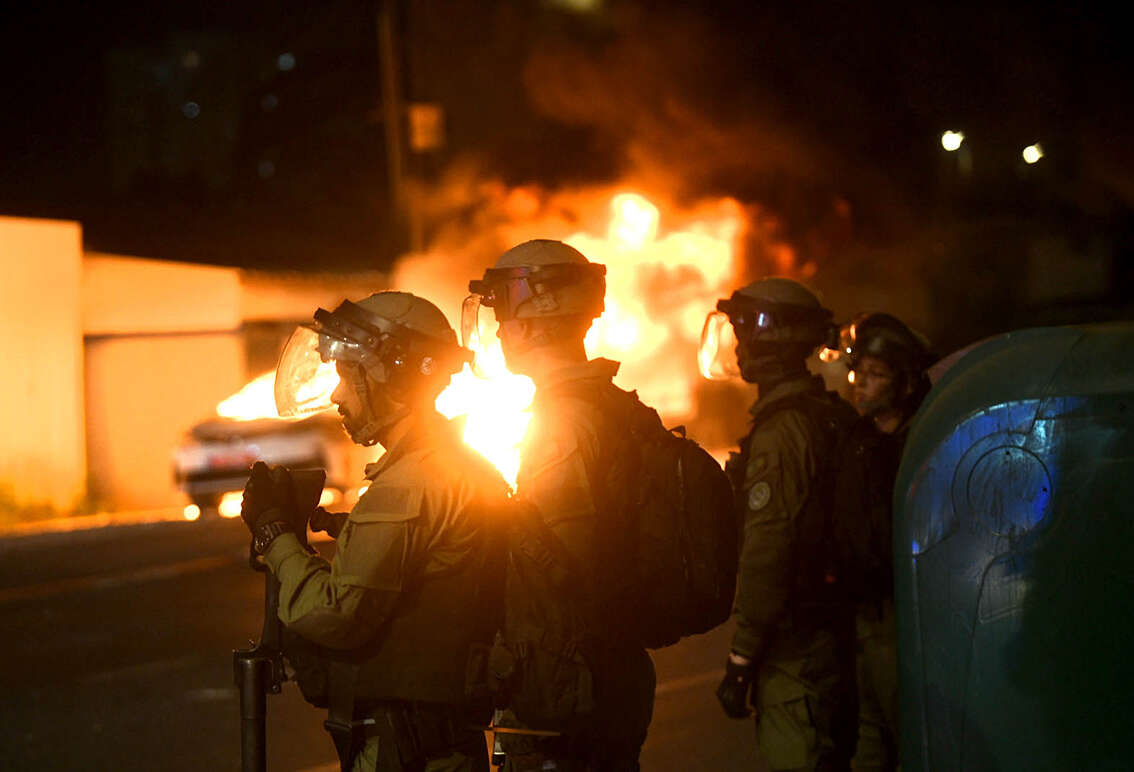Arab Israelis are constantly conflicted by questions of political and national loyalty, as the majority of them have little faith in Israel's law enforcement agencies, a survey by Habithonistim–Protectors of Israel, a movement of Israeli defense officials advocating for Israel's future security needs, revealed Monday.
Follow Israel Hayom on Facebook, Twitter, and Instagram
With the first anniversary of Operation Guardian of the Walls approaching and against the backdrop of rising security tensions, the poll found that 69% of Jewish Israelis are concerned about what the future holds for the Jewish state, and 67% believe stricter measures – including fines and the use of live fire – should be employed to prevent riots and friction between Jews and Arabs.
The survey, which examined the Israeli sense of security and governance among a sample of 1,068 Jews and Arabs aged 18 and over, further derived that 75% of the country's Arab citizens believe Jews have no right to sovereignty in the land of Israel, while only 25% said that they gave this right.

However, asked where their loyalties would lie in case of an existential battle between Israel and Arab states, 26% of Arab Israelis said they would support the Jewish state, 23% would back the Arab aggressors, and 51% said they would not support any of the warring parties.
The poll further showed that Arab Israelis place little if any faith in the country's law enforcement agencies: 66% of all Israelis said they distrust the Israel Police, and within the Arab sector, the figure jumped to 73%.
Some 71% of Arab Israelis said they have little or no sense of personal safety, while 44% of Jewish Israelis said the same.
As for Prime Minister Naftali Bennett's plan to form a national guard to boost public safety, the poll found that 66% of the public support the move, including 44% of Arab Israelis, 37% of whom would be willing to join its ranks in case of riots – a statement echoed by 54% of Jewish Israelis.
Asked about the 2021 riots in Israel's mixed cities, 53% of Arab Israelis and 88% of Jewish Israelis said the root cause was national and/or religious. Some 22% of Arab Israelis said they believe the riots were fueled by socio-economic reasons.
As for which measures should be used to quell such riots, if they take place in the future, Jewish Israelis listed crowd control measures (72%), revoking civil rights and state benefits (70%), and imposing fines and other punitive measures (67%).
Only 28% of Arab Israelis named fines and punitive measures as the correct course of action, and 20% said they believed revoking civil rights and state benefits would be the most effective measure.
Regarding the coverage of the violence in the mixed Arabs and in Judea and Samaria, 70% of the Jews responded that there was biased coverage in favor of the Arab public. Surprisingly, 33% of the Arab public also agreed with this statement.
As for the media coverage of last year's riots in Judea and Samaria and the mixed cities, 70% of Jewish Israelis said they think the coverage favored the Arab sector, as did 33% of Arab Israelis.
"We are now on the verge of a troubling reality, said Habithonistim Director Brig. Gen. (Res.) Amir Avivi. "The loss of governance in the Negev, a political rift among the public, a sense of personal insecurity, the impending nuclear deal, and the wave of terrorism instigated by Hamas from Judea and Samaria – these are all challenges that require us, as defense officials, to mobilize in order to reflect this alarming reality."
Subscribe to Israel Hayom's daily newsletter and never miss our top stories!




